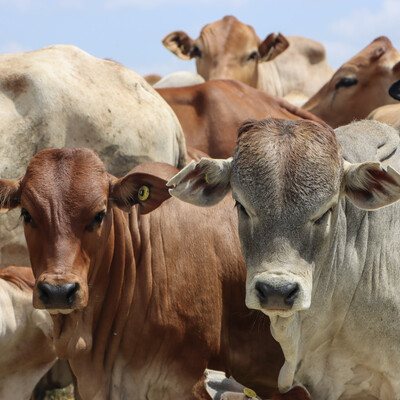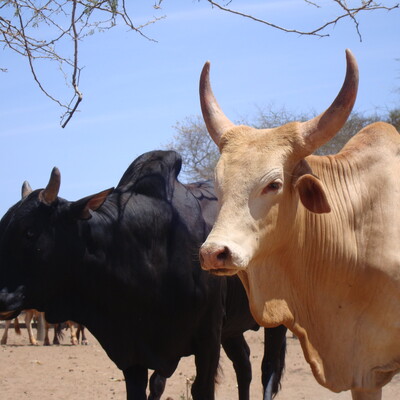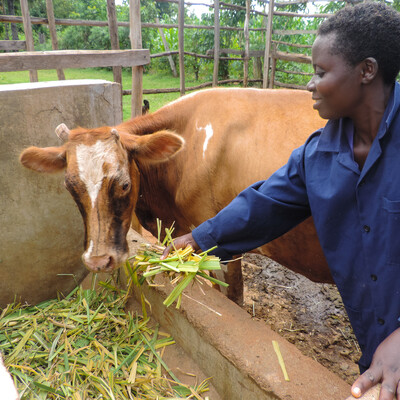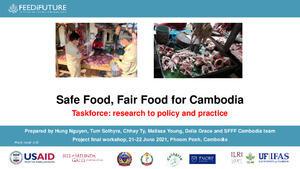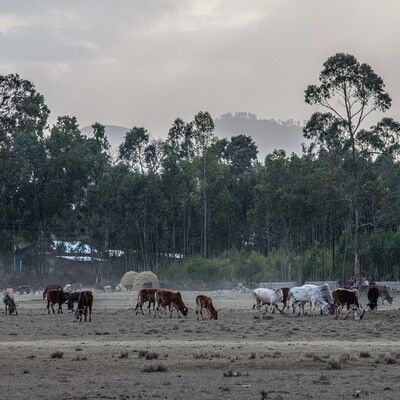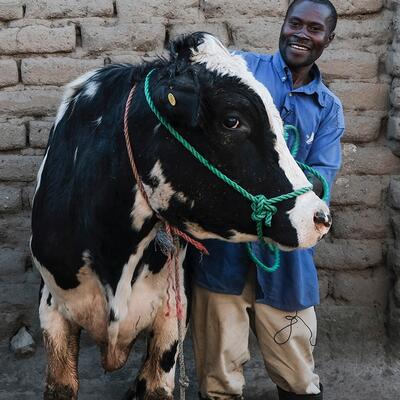
Bridging knowledge gaps in agro-meteorological services for smallholder farmers in northern Nigeria
ILRI News
Posted on
Contributors
In the face of growing climate challenges, smallholder farmers in northern Nigeria are at the front line, navigating droughts, floods, and shifting weather patterns. Yet, access to timely climate information remains a critical gap. To address this, the International Livestock Research Institute (ILRI), in partnership with the Nigerian Meteorological Agency (NiMet) and funded by the Alliance for Green Revolution in Africa (AGRA), recently organized a pivotal workshop in Abuja.
The workshop brought together experts, policymakers and stakeholders to discuss the critical role of agro-meteorological data and services in advancing climate-smart agriculture in Nigeria. The workshop aimed to identify key challenges and opportunities to collect agro-meteorological data and deliver context-specific climate information services.
Charles Anosike, director general and CEO of NiMet described the event as timely and thanked ILRI for its role.
“The event is coming at the right time when NiMet is working on a strategy that will better support pastoralist landscapes of Nigeria in a bid to strengthen engagement, and ensure the development of early warning systems specifically for the sector to make it resilient and sustainable in advancing the UN EW4ALL initiative.”
He added that NiMet’s agrometeorological advisories have evolved in scope, including the concept of co-production which is supported by the World Meteorological Organisation (WMO).
“Co-production allows critical stakeholders to be part of the production process of weather and climate information to increase the depth and improve the accuracy and relevance of the information provided. The workshop allows critical stakeholders to map the climate information advisories that are critical to smallholder farmers, and livestock keepers”, Anosike concluded.
Anthony Whitbread, program leader of livestock, climate, and environment at ILRI highlighted the need for innovative approaches to climate information delivery. He stressed the importance of using digital tools and platforms such as the 'agdatahubs' as well as iSAT tool to reach farmers with timely and accurate weather updates to inform their decisions, build resilience and improve delivery of information to the last mile including gender and social inclusion.
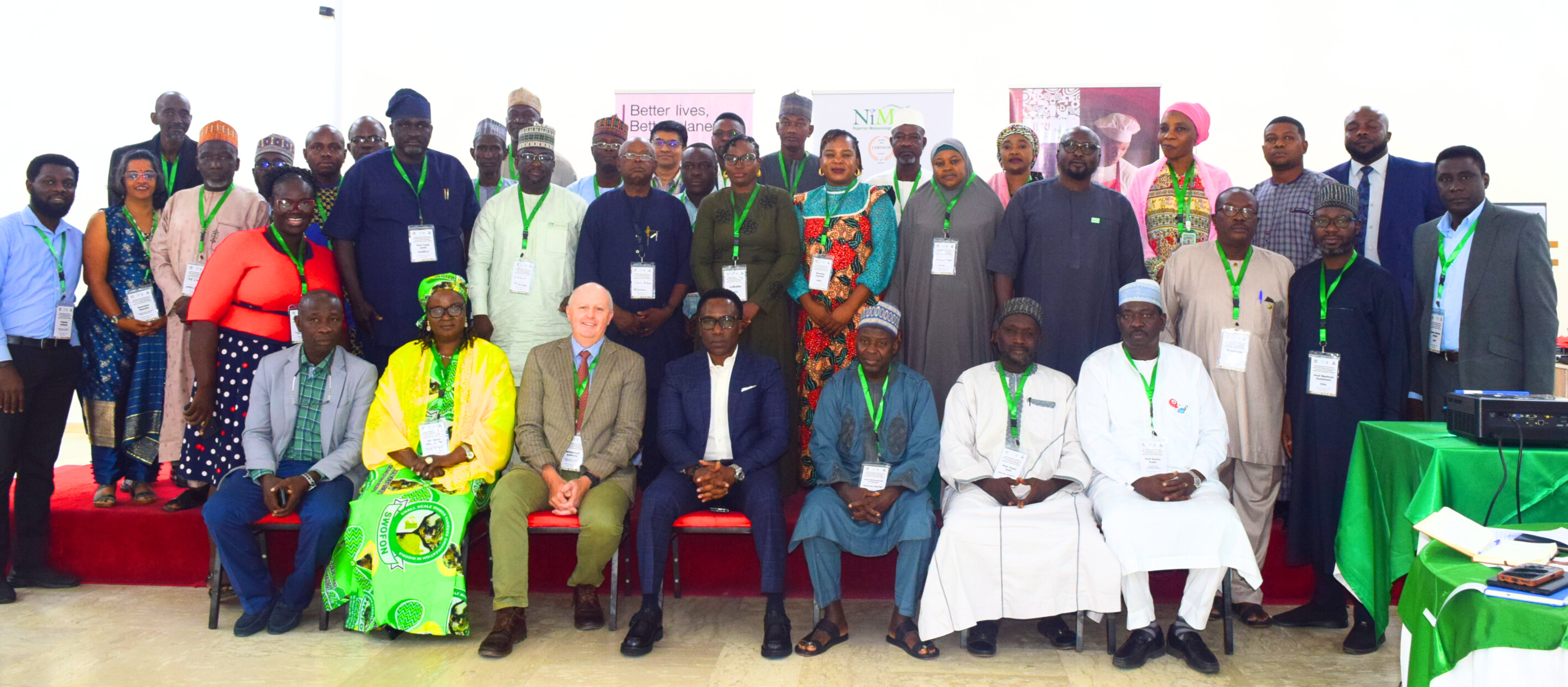
One of the key discussions centered on the need to improve the accessibility and usability of climate information for farmers and this was echoed by Thomas Arokoyo, program officer at AGRA Nigeria, who reiterated AGRA’s commitment to enhancing climate-smart agriculture in Nigeria is transforming the livelihoods of pastoral communities.
“By deploying community-based advisors, that is, local extension agents trained to convey complex agricultural information in native languages, AGRA ensures that critical climate knowledge reaches even the most remote farmers,” he explained.
“These advisors conduct farm demonstrations and provide farmers with mobile tools for accessing real-time weather updates, helping them adopt resilient practices such as using flood-resistant rice or early-maturing maize varieties in areas prone to flood and drought respectively” Arokoyo concluded.
Underscoring the importance of institutional linkages and data-driven solutions in transforming agricultural resilience, Ram Dhulipala, senior scientist of digital agriculture and innovation at ILRI shared insights from the Kenyan agro-met advisories setup, illustrating how these lessons can be applied in Nigeria to develop fit-for-purpose decision support tools for farmers.
Rupsha Banerjee, senior scientist of institutions and innovation at ILRI, highlighted the challenges and opportunities in delivering climate-smart services, emphasizing the need for context-specific, relevant and targeted information for farmers and livestock keepers.
Mary Afan, president of the Small-scale Women Farmers Organization in Nigeria (SWOFON), expressed her gratitude for being part of the ILRI workshop. She emphasized the importance of including farmers—especially women and youth—in such discussions, as they are the critical end-users of innovations.
Highlighting concerns about the poor harvest this year, Afan called on NiMet and FMAFS to urgently support dry season farming as an immediate intervention to mitigate potential food shortages and rising prices. She stressed the need for well-targeted programs that truly reach smallholder farmers, ensuring that government efforts lead to increased production and food security.
Lastly, she challenged the perception that farmers are uneducated and cannot contribute meaningfully to planning processes, stating,
“I am a professor in my own field—others know it from books, but I know it from the land.”
Her call for inclusion underscores the value of farmer-driven insights in shaping sustainable agricultural policies and practices.
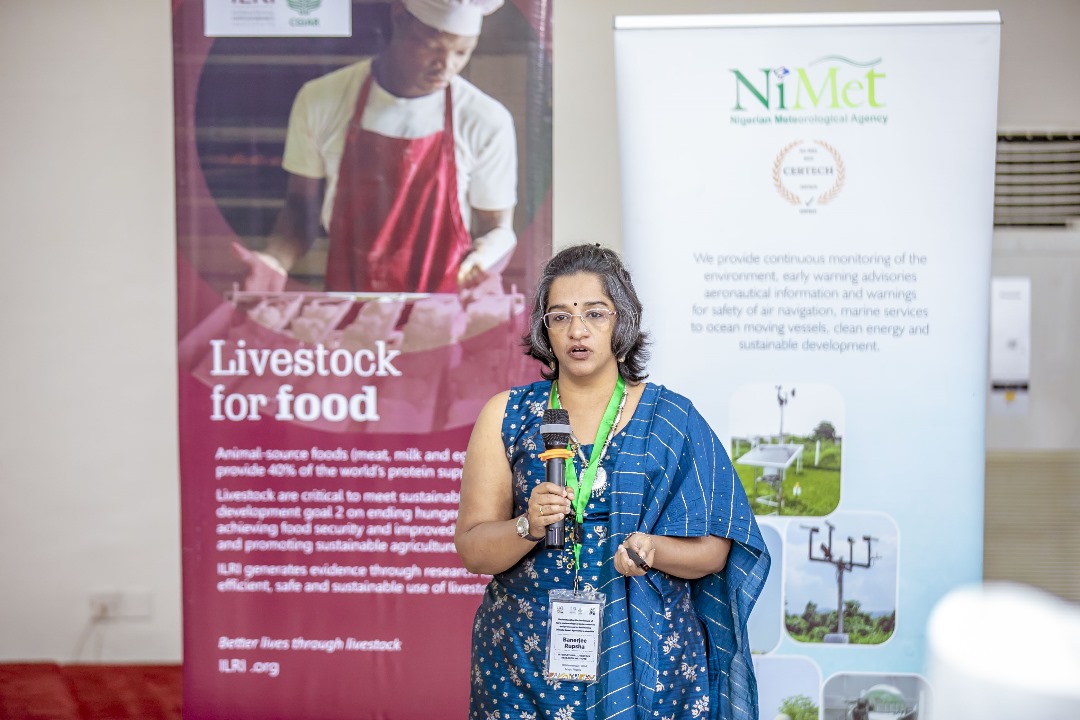
Whitbread emphasized the need for stronger coordination between stakeholders and climate information service providers to address the pressing climate challenges in Nigeria. He stressed the importance of linking extension and climate information and finding delivery channels that effectively reach farmers, pastoralists and livestock keepers.
A major aim of the AGRA funded workshop was to identify barriers to this last mile delivery by co-developing delivery pathways, partnerships and modern approaches to dataflows that enable co-creation of climate-informed extension information in real time.
You may also like

Opinion and analysis
Sustainable manure management in Uganda requires an enabling policy and legal framework: a call to action!

ILRI News
ILRI introduces the Livestock and Climate Solutions Hub at SAADC 2025 to address climate challenges in livestock systems
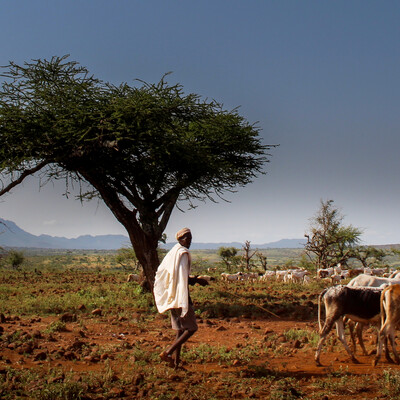
ILRI News
When policy meets pasture: Farmers and scientists joining forces to shape a fair climate future
Related Publications
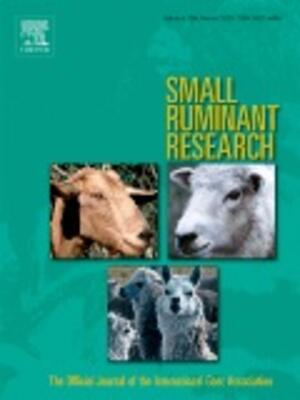
Systematic review on the impacts of community-based sheep breeding programs on animal productivity, food security, women’s empowerment, and identification of interventions for climate-smart systems under the extensive production system in Ethiopia
- Tesfa, Assemu
- Taye, Mengistie
- Haile, Aynalem
- Nigussie, Zerihun
- Najjar, Dina
- Mekuriaw, Shigdaf
- Dijk, Suzanne V
- Wassie, Shimels E
- Wilkes, Andreas
- Solomon, Dawit
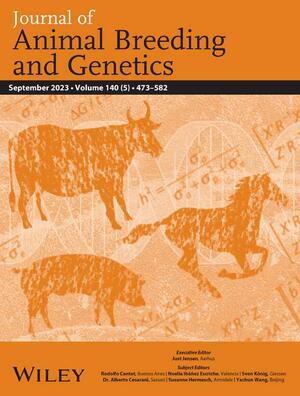
Genetic relationships among resilience, fertility and milk production traits in crossbred dairy cows performing in sub-Saharan Africa
- Oloo, Richard Dooso
- Mrode, Raphael A.
- Ekine-Dzivenu, Chinyere C.
- Ojango, Julie M.K.
- Bennewitz, J.
- Gebreyohanes, Gebregziabher
- Okeyo Mwai, Ally
- Chagunda, M.G.G.

The impact of heat stress on growth and resilience phenotypes of sheep raised in a semi-arid environment of sub-Saharan Africa
- Oyieng, Edwin P.
- Ojango, Julie M.K.
- Gauly, M.
- Ekine-Dzivenu, Chinyere C.
- Mrode, Raphael A.
- Clark, E.L.
- Dooso, Richard
- König, S.
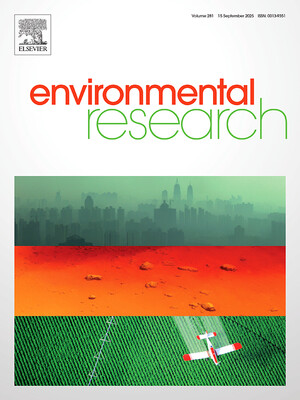
Ambient environmental conditions and active outdoor play in the context of climate change: A systematic review and meta-synthesis
- Lee, E.-Y.
- Park, S.
- Kim, Y.-B.
- Liu, H.
- Mistry, P.
- Nguyen, K.
- Oh, Y.
- James, M.E.
- Lam, Steven
- Lannoy, L. de
- Larouche, R.
- Manyanga, T.
- Morrison, S.A.
- Prince, S.A.
- Ross-White, A.
- Vanderloo, L.M.
- Wachira, L.-J.
- Tremblay, M.S.






